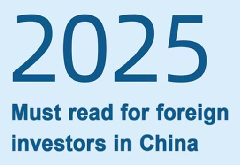Provisions for the Supervision and Administration of Drug Manufacturing
Chapter V Legal Liability
Article 68 In case of any following circumstances, penalties shall be imposed in accordance with Article 115 under the Drug Administration Law:
(1) A drug MAH or a manufacturer changes the manufacturing facility or scope of manufacturing without approval;
(2) Manufacturing is performed while the Drug Manufacturing Certificate has expired.
Article 69 Where a drug MAH or drug manufacturer has failed to carry out manufacturing activities as per GMP requirements in any of the following circumstances and the circumstance belongs to the serious circumstances as specified in Article 126 under the Drug Administration Law, penalties shall be imposed according to law:
(1) failing to appoint a dedicated person in charge of quality to independently undertake drug quality management and supervise GMP implementation;
(2) the drug MAH has failed to appoint a dedicated Qualified Person to fulfill drug marketing release responsibilities;
(3) the drug manufacturer has failed to appoint a dedicated Qualified Person to fulfill drug release responsibilities;
(4) the quality management system cannot operate normally; records and data of manufacturing in process control and quality control are not authentic;
(5) effective risk control measures have not been promptly taken for identified risks so that the product quality cannot be ensured; or
(6) other circumstances where good manufacturing practice has been seriously violated.
Article 70 Where manufacturers and suppliers of excipients or primary packaging materials and container in direct contact with drug products do not comply with the quality management standards or relevant requirements established by the NMPA and cannot ensure the quality management system persistently complies with regulatory requirements, the drug regulatory departments of the provinces, autonomous regions or municipalities directly under the Central Government shall impose punishments in accordance with Article 126 under the Drug Administration Law.
Article 71 In case of any following circumstances, the drug regulatory department of the province, autonomous region or municipality directly under the Central Government shall impose a fine of more than RMB 10,000 yuan but less than RMB 30,000 yuan:
(1) failing to go through the formality for changes to recorded items for the enterprise name, residence (business place) or legal representative;
(2) failing to carry out health examination of personnel in direct contact with drugs each year and establish health achieves; or
(3) failing to report manufacturing shutdown of drugs included into the list of drugs in shortage of which manufacturing shutdown shall be reported by the state as specified.
Article 72 Where a drug regulatory department has committed any of the following behaviors, the executives directly responsible and other persons directly responsible shall be punished according to provisions in Article 149 of the Drug Administration Law:
(1) concealing, delaying, omitting or making false reporting of drug safety incident;
(2) failing to promptly investigate and deal with drug safety violation upon discovery;
(3) failing to promptly discover systemic risks of drug safety, or failing to promptly eliminate drug safety hazards within their supervision and administration region, resulting in serious consequences; or
(4) failing to perform drug supervision and administration duties, resulting in serious adverse impact or serious losses.
Chapter VI Supplementary Provisions
Article 73 Timelines specified in these Provisions are calculated based on working days. Time needed for technical review and evaluation, on-site inspection and enterprise remediation in drug manufacturing licensing is not included into the timelines.
Article 74 Site master file refers to a summary document of drug production activities prepared by a drug manufacturer, which is a part of the files in the manufacturer's quality management system. The requirements for site master files will be defined separately.
The manufacturing facilities and overseas manufacturing facilities of active drug ingredients, excipients, primary packaging materials and container in direct contact with drug products having been approved or passed bundling review shall be given a unified code.
Article 75 A warning letter refers to the letter issued by the drug regulatory department according to the law where evidence suggesting the potential presence of safety risks is found during drug supervision activities. The warning letter shall list deficiencies, problems and correction requirements.
Article 76 The rule to number the Drug Manufacturing Certificate shall be: abbreviation of the province + the year (four digits) + the sequence numbers (four digits). When a change is made to the company name or other items or the license is re-issued, the original Drug Manufacturing Certificate number remains unchanged.
In the case of company separation, new numbers shall be coded and the original Drug Manufacturing Certificate number is remained; in the case of company merger, one of the original Drug Manufacturing Certificate numbers shall be remained.
Article 77 The classification code is an English alphabetic string that categorizes the manufacturing scope specified in the Drug Manufacturing Certificate. Capital letters categorize drug MAHs and product categories. A represents the drug MAH manufacturing drugs by itself. B represents the drug MAH contract giver. C represents the drug contract accepting manufacturer. D represents the active drug ingredients manufacturer. Lowercase letters are used for differentiating drug preparation attributes, where h represents chemical drugs, z represents Chinese patent medicine; s represents biological products; d represents IVD Reagents regulated as drugs; y represents Prepared Slices; q represents medical gases; t represents special drugs and x represents others.
Article 78 The manufacturing scope specified in the Drug Manufacturing Certificate shall be defined pursuant to the requirements of the General Provision of drug product under the Pharmacopoeia of People's Republic of China and other national drug standards.
Article 79 The provisions otherwise defined in applicable national laws and regulations for the production of vaccines, blood products, narcotics and psychotropic drugs, toxic drugs for medical use, radioactive drugs, drug precursor chemicals, shall be followed.
Article 80 Vaccines for exportation shall comply with standards or contract requirements in the importing countries (regions).
Article 81 These Provisions shall go into effect as of July 1, 2020. The Drug Production Regulation promulgated under Decree No.14 by the former State Food and Drug Administration on August 5, 2004 shall be repealed simultaneously.
Note: In case of any difference in interpretation between the English version and the Chinese version, the Chinese version shall prevail.



